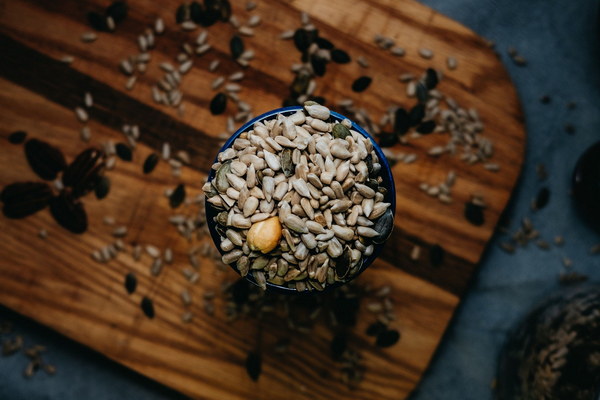Nurturing the Body Effective Strategies to Alleviate Anxiety and Fear
Introduction:
Anxiety and fear are common emotional responses to stressors in life. However, when they become overwhelming, they can take a toll on our physical well-being. In this article, we explore various strategies to nurture your body and alleviate the symptoms of anxiety and fear. By adopting a holistic approach, you can regain control over your emotional and physical health.
1. Mindfulness and Meditation:
One of the most effective ways to address anxiety and fear is through mindfulness and meditation. These practices help you stay grounded in the present moment, reducing the intensity of anxious thoughts. Here’s how to get started:
- Find a quiet, comfortable place to sit or lie down.
- Close your eyes and take deep, slow breaths.
- Focus on your breath, observing the sensations in your body without judgment.
- When your mind wanders, gently bring your attention back to your breath.
- Continue this practice for at least 10 minutes daily.
2. Regular Exercise:
Physical activity is a powerful tool in managing anxiety and fear. Exercise stimulates the release of endorphins, which are natural mood lifters. Aim for at least 30 minutes of moderate exercise most days of the week, such as walking, cycling, or swimming.
3. Balanced Diet:
Your diet plays a crucial role in maintaining your mental and physical health. A balanced diet rich in fruits, vegetables, whole grains, lean protein, and healthy fats can improve your mood and reduce anxiety. Here are some dietary tips:

- Include omega-3 fatty acids, found in fish, nuts, and seeds, as they have been shown to reduce anxiety.
- Consume foods high in magnesium, such as spinach, almonds, and avocado, as magnesium deficiency can contribute to anxiety.
- Avoid excessive caffeine and alcohol, as they can exacerbate anxiety symptoms.
4. Adequate Sleep:
Quality sleep is essential for managing anxiety and fear. Aim for 7-9 hours of sleep each night. To improve your sleep, try the following:
- Establish a consistent sleep schedule, going to bed and waking up at the same time each day.
- Create a relaxing bedtime routine, such as reading a book or taking a warm bath.
- Limit exposure to screens at least an hour before bed, as the blue light emitted by devices can disrupt sleep.
5. Breathing Techniques:
Deep, controlled breathing can help calm the nervous system and reduce anxiety. Here are some effective breathing exercises:
- Four-Seven-Eight technique: Inhale for four seconds, hold your breath for seven seconds, and exhale for eight seconds. Repeat for four cycles.
- Box breathing: Inhale for four seconds, hold for four seconds, exhale for four seconds, and hold for four seconds. Repeat for several cycles.
6. Social Support:
Connecting with friends, family, or support groups can provide emotional support and reduce feelings of isolation. Sharing your experiences and seeking advice from others who have faced similar challenges can be incredibly helpful.
7. Professional Help:
If anxiety and fear are significantly impacting your daily life, consider seeking help from a mental health professional. Therapy, such as cognitive-behavioral therapy (CBT), can teach you coping skills and strategies to manage your anxiety.
Conclusion:
Alleviating anxiety and fear requires a holistic approach that addresses both mental and physical well-being. By incorporating mindfulness, exercise, a balanced diet, adequate sleep, breathing techniques, social support, and professional help when needed, you can take steps towards a healthier, more peaceful life. Remember that it's essential to be patient and persistent as you work to improve your overall well-being.









